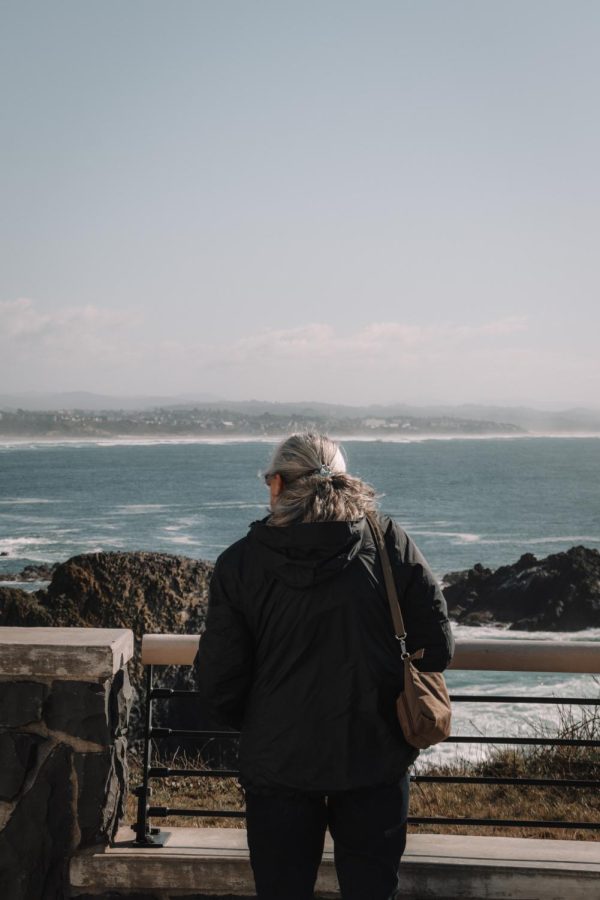- Beavers Digest / Cascades
- Beavers Digest / Cascades / Culture
- Beavers Digest / Cascades / Experience
- Beavers Digest / Culture
- Beavers Digest / Culture / Expression
- Beavers Digest / Experience
- Beavers Digest / Experience / Campus
- Beavers Digest / Experience / Outdoors
- Beavers Digest / Experience / Wellness
Feeling stressed? Nature can help to relax and recenter yourself
By Madi Stines, OMN Photographer
Karen Shreeve visiting the Yaquina head lighthouse lookout in Newport, Ore.
April 22, 2022
“I think there is intrinsic value in nature and when you spend time outside in it, you recognize that its value is just inherent,” said Abby Phillips Metzger, the communications manager for the College of Earth, Ocean and Atmospheric Sciences at Oregon State University.
Metzger said that often nature can be thought of as a commodity, especially in the context of the Western world, yet, she noted, “disconnecting from that paradigm and being in nature as a part of it, not on top of it, or as something to serve us, is very important.”
People note how nature allows our technologically advanced and man-made society to reconnect with the natural world and find peace within oneself.
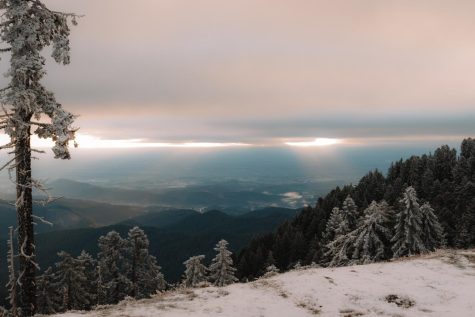
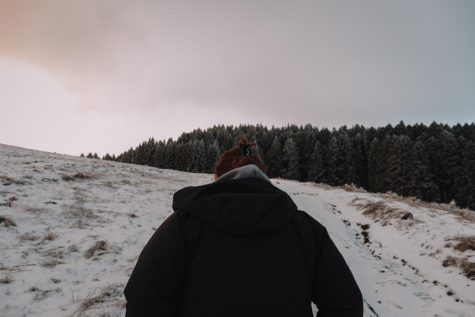
Carly Lettero, the program manager with the Spring Creek Project and the program manager of the Environmental Arts and Humanities Initiative at OSU acknowledged this idea, “we are natural beings, and so I think it’s important on all levels to reconnect with that.”
The Spring Creek Project is an organization working to address the most pressing environmental issues through community engagement, and public arts and humanities work, according to Lettero.
In regards to why spending time in nature is important to them, Ellery Lewis, a student, trip leader and desk manager of the Adventure Leadership Institute at OSU said, “It’s really important for me. Just because, I mean that’s what humans evolved to do right? We didn’t evolve in cities, we had to make them.”
Metzger talked about how nature has been a source of spirituality for religions, traditions and cultures for ages.
“It’s certainly no accident that many, many cultures and communities talk about nature, whether it is rivers, forests or mountains in spiritual terms,” said Metzger. “I think it shows us that there is something bigger and more important than our own lives. It can put our lives into context, and connect us to the broader earth system.”
Metzger noted many religious texts make references to natural things such as trees. She said whether it’s through a formalized church or one’s own spiritual practice, nature serves as a source of spirituality, connecting humans to the earth.
“We talk about rivers in spiritual ways, for instance; they’ve inspired romantic poets for ages, and there’s Indigenous traditions involving rivers and nature,” said Metzger.
Tyanna Van Pelt, a student at OSU, a community relations representative with OSU’s Kaku-Ixt Mana Ina Haws and a member of the Confederated Tribes of the Umatilla Indian Reservation, expanded on this idea. Van Pelt said she was taught by her family that nature was like a mother.
“As I grew up, my dad now has taught me that nature is our mother, because she provides us with food, she provides us with growth, she provides us with a place to stay,” Van Pelt said, adding, “because she provides all these necessities that we need, we also give her back when we take.”
Van Pelt said that for example, when they hunt and kill a deer or elk, they give back tobacco, pray and sing.
“My uncle and my dad sing when they hunt,” Van Pelt said.
Nature as a source of spirituality for many people, also provides a sanctuary for the human body and mind, reconnecting one to life through the natural world.
Van Pelt noted how being outside is relaxing and calming for her. Lewis talked about how their childhood backpacking trips were a way to become grounded and escape the chaos of deadlines, school and other people’s expectations. Metzger said that when out in nature, her pressures and perceived pressures are put into perspective, allowing her to be recentered, balanced and re-enter the world with more clarity.
“When our brain is focused and calm, we know that can inspire spiritual meaning and inspire art,” said Metzger. “It also just makes us more physically relaxed. I think where the mind goes, the body follows and so if our psychology is able to just recenter, so can our physical selves.”
She noted that she has heard of people using time in forests as a form of therapy, saying that spending time in nature “is a way to sort of ground and reorient ourselves as humans as part of this world.”
Spending time outside can lead to a sense of peace mentally, spiritually and physically. Yet, taking the time to get outside does not need to begin with extravagance, but it does begin by making it a priority, according to Metzger.
Integrating time outside is important and can be done by simple things like eating outside or taking a short walk, which can help reconnect one to the natural world, according to Lettero.
“I think if we can steal those moments whenever we can or kind of ritualize them so that they’re integrated into our schedules as much as possible, even if it’s five minutes at a time, it can really make a difference,” Lettero said.
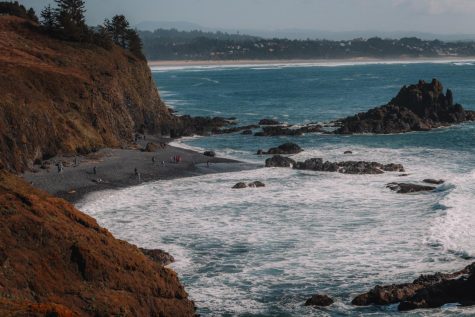
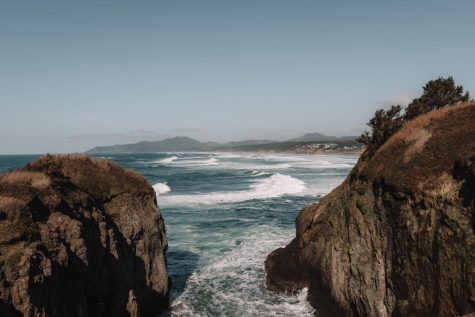
Metzger added, “If you have the time, space, luxury and privilege to also go away for a weekend and travel, that’s fantastic, but I don’t think that is the only way to experience nature. It can happen in smaller ways.”
A campus source for going outdoors is the Adventure Leadership Institute, a student organization at OSU that makes going on outdoor adventures easier and more affordable. You can rent gear and sign up for trips through the ALI. Lewis noted that while getting outside, you also make a lot of friends and build a sense of community.
In order to do this, the preservation and protection of nature is important. Metzger said there is nothing higher to aspire to, than nature in its utmost thriving state.
“The first step in ensuring we have ways to engage with wildness or wilderness is preservation,” said Metzger. “We must preserve and conserve wild spaces. I think when we see nature working at its best and most untouched way, we can learn from it, we can understand that there is a system, a rhythm, a seasonality to nature that operates on its own and without us little humans.”
Lettero added to these ideas, “I think the more time we spend outside, the deeper appreciation we have for the natural world, for the cycles of the seasons, for all of the life we share this planet with.” Lettero added that “having that connection and that deep appreciation can help us want to take care of the world.”

